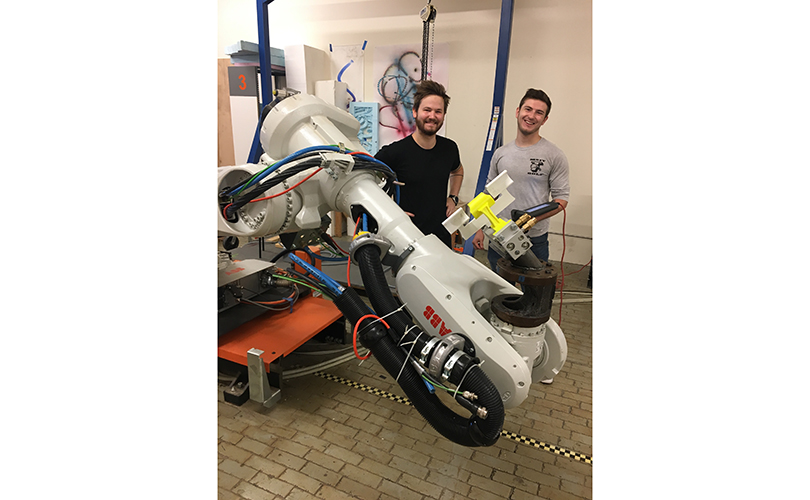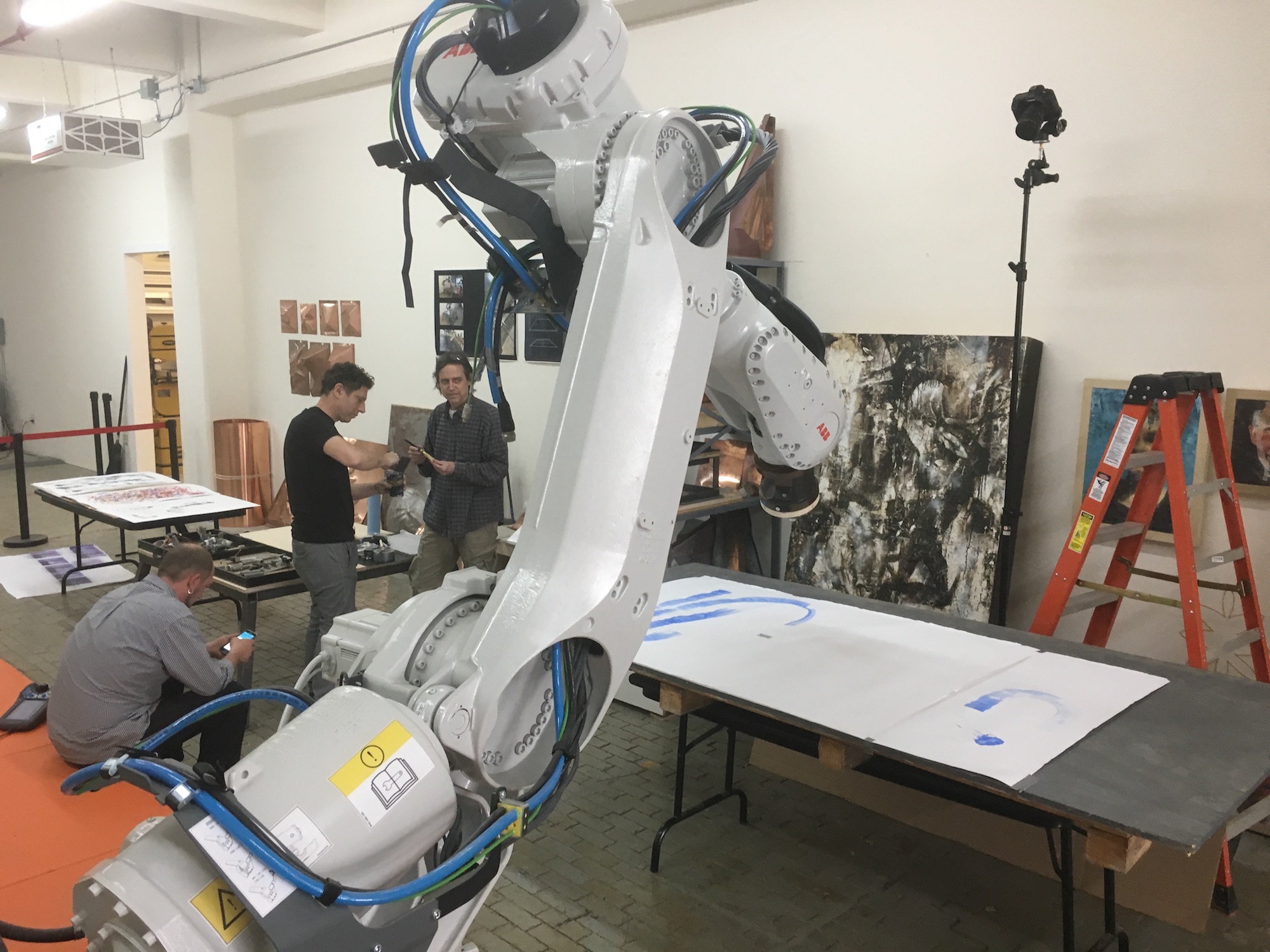
At the Consortium for Research & Robotics (CRR) hosted by Pratt Institute in the Brooklyn Navy Yard, education and industry are brought together in technology-driven collaboration. From applied research projects to STEM programs, these experiences center around New York City’s largest industrial robot. One aspect of this environment is an incubator program. Access to robotics technology can be a major hurdle for small businesses with limited resources and capital, and this program connects emerging startups to cutting-edge robotics facilities and the innovation happening at Pratt.
One of these startups is the Brooklyn-based Toggle, which recently announced its raising of $3 million in seed funding. Founded in 2016 by Daniel Blank and Ian Cohen, Toggle’s two years at CRR were vital in developing solutions to a widespread need in construction. In a video featuring the CRR space, the founders explain how they digitally fabricate and assemble rebar—a ubiquitous material in modern building—using robotics to make the labor-intensive process of bending metal safer and more efficient.
“This is exactly what the Consortium wants to be doing, which is matching up its skills around creativity and technology to other organizations’ needs,” said Mark Parsons, CRR Founder and Executive Director.
Pratt was one of the first art and design schools to incorporate robotics into its curriculum and CRR further engages emerging designers in new technology. The incubation program involves Pratt students in entrepreneurship and engineering, with several employed as interns by Toggle during their time at CRR. The startup is one of a number of diverse businesses that have incubated at CRR, with others including Artmatr which has artists and engineers collaborating on merging digital technology with traditional painting; Bento Box which builds modular systems to organize offices and homes; Remo Haptics which uses wearable trackers to improve performance in athletes and cyclists; and Trak-Kit which designs flat screens free from wall mounts. While these companies existed before their time at CRR, Toggle launched as a startup out of the experience.

CRR is now searching for its next two incubation partners which could be small businesses or R&D branches of larger companies. “I know of no other organization that does what we do in New York City, in that we are providing access to large-scale technology,” Parsons said. “We’re lowering the cost of entry to prototyping and product development by providing the technology and the people who know how to code and think practically and creatively around large-scale industrial robotics.”
As Parsons noted, because of the concentration of technical expertise and tools at CRR, they can complete prototypes that would ordinarily take months in just days. Along with the large industrial robot, CRR has resources for CNC Milling, 3D printing, laser cutting, metalworking, and woodworking. Joined with classroom, presentation, and coworking spaces, these tools accelerate experimentation and collaboration within CRR’s rotating community of students, educators, designers, and artists. As active members of this network, Pratt students can work through the whole process of launching a startup while receiving valuable hands-on experience with robotics technology.
Among CRR’s partners are entrepreneurship programs like New York University’s RLab and URBAN-X which work in parallel with CRR’s incubation; Toggle, for instance, was part of URBAN-X concurrent to several of its months at CRR. Through these collaborations, Pratt contributes to the vibrancy of local industry and the growing possibilities for the power, precision, and optimization of robotics to be part of an ecosystem of innovation.
All images courtesy the Consortium for Research & Robotics (CRR): Greg Sheward and Tyler Kruppa of CRR working on arm tooling for Toggle; Artmatr creating robotic art at CRR